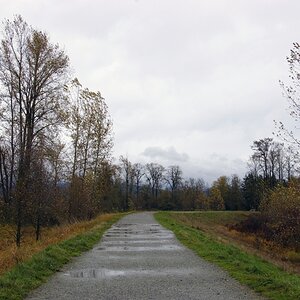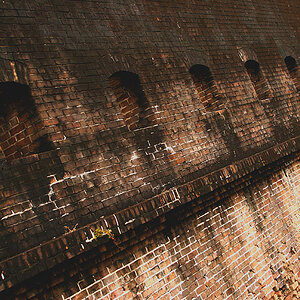Navigation
Install the app
How to install the app on iOS
Follow along with the video below to see how to install our site as a web app on your home screen.

Note: This feature currently requires accessing the site using the built-in Safari browser.
More options
You are using an out of date browser. It may not display this or other websites correctly.
You should upgrade or use an alternative browser.
You should upgrade or use an alternative browser.
Phones vs DSLRs
- Thread starter mrsL3MONade
- Start date
fjrabon
Been spending a lot of time on here!
- Joined
- Nov 3, 2011
- Messages
- 3,644
- Reaction score
- 754
- Location
- Atlanta, GA, USA
- Can others edit my Photos
- Photos OK to edit
Cameras would be handier to use if they did have instant upload to Facebook/Flickr/FTP site/DropBox in an easy-to-configure, easy-to-use manner, and if they could accept Apps for various tasks, but it seems that the Japanese camera industry has almost zero clues about the Internet Age, so I do not expect any rapid movement in this direction until leadership changes occur at the various camera companies. However--the Nikon D7200 now comes with built-in WiFi and built-in NFC capability, so...that's a two-part nod to the modern era. Baby steps, I guess one could say, baby steps.
Yeah, I don't think they'll ever catch up to cell phone makers. Problem is that camera companies do have such a huge advantage when it comes to lenses that they aren't pushed like cell phone makers are when it comes to tech. 10 year old tech is breaking edge for camera makers. If Samsung fell ten years behind in current tech, they'd be out of the cell phone game. But in the camera world, where lenses rule, you can get by while lagging on technology investment.
What I envision is where companies like Nikon simply give up trying to make a computer in their camera (much like how Nikon gave up on making sensors and farmed the job out to Sony) and focus on what they are good at: lenses and (in most cases) sensors. Would they give that up easily? I don't think so, at first. But it's where I see the market heading.
The idea of having a portable processing hub that many other devices interact with is the future, as I see it. We're seeing the beginning of it now with things like the Apple Watch, which mostly farms out the power of the iPhone.
fjrabon
Been spending a lot of time on here!
- Joined
- Nov 3, 2011
- Messages
- 3,644
- Reaction score
- 754
- Location
- Atlanta, GA, USA
- Can others edit my Photos
- Photos OK to edit
eh, at this point I think the conversation has morphed into "how DSLRs could take a few lessons from cell phones" which IMHO is as fruitful as most convo here.Also, I'd like to say:

Derrel
Mr. Rain Cloud
- Joined
- Jul 23, 2009
- Messages
- 48,225
- Reaction score
- 18,941
- Location
- USA
- Website
- www.pbase.com
- Can others edit my Photos
- Photos OK to edit
The convenience of the cell phone camera is its thin, easy-to-pack form factor and its good stills/good video shooting capabilities, plus its super-easy communication with other people and their phones, as well as social media connectivity, and App-based expandability. Overall the cell phone of today is easy to use, powerful, and instantly connected. All these things above, all of them, make today's smart phone super convenient.
Camera sales are dropping off world wide because today's smart phones make everything that the majority of today's picture-takers want to do EASY to accomplish; people want to take pictures and also videos, and then use them and share them, mostly through social media and web-based sites...currently this is the BIGGEST single place that photos and videos are being used, but cameras for the most part, cannot do any of the things the majority of people want to do, without a lengthy series of steps...the first of which is ,"Return to home base to do everything that follows..."
Camera sales are dropping off world wide because today's smart phones make everything that the majority of today's picture-takers want to do EASY to accomplish; people want to take pictures and also videos, and then use them and share them, mostly through social media and web-based sites...currently this is the BIGGEST single place that photos and videos are being used, but cameras for the most part, cannot do any of the things the majority of people want to do, without a lengthy series of steps...the first of which is ,"Return to home base to do everything that follows..."
fjrabon
Been spending a lot of time on here!
- Joined
- Nov 3, 2011
- Messages
- 3,644
- Reaction score
- 754
- Location
- Atlanta, GA, USA
- Can others edit my Photos
- Photos OK to edit
Right. Think about the photojournalism we see today. Mostly it's shot on cell phone cameras, because the news cycle is too fast for DSLRs. Wifi in cameras has bridged the gap somewhat, but most of the images that end up having impact are taken on a cell phone and then tweeted out. As much as we may long for them, gone are the days of an event being covered with a Leica and then the pictures surfacing days, if not weeks or months later. If the image isn't out there within hours, it's often obsolete in a lot of photography genres.The convenience of the cell phone camera is its thin, easy-to-pack form factor and its good stills/good video shooting capabilities, plus its super-easy communication with other people and their phones, as well as social media connectivity, and App-based expandability. Overall the cell phone of today is easy to use, powerful, and instantly connected. All these things above, all of them, make today's smart phone super convenient.
Camera sales are dropping off world wide because today's smart phones make everything that the majority of today's picture-takers want to do EASY to accomplish; people want to take pictures and also videos, and then use them and share them, mostly through social media and web-based sites...currently this is the BIGGEST single place that photos and videos are being used, but cameras for the most part, cannot do any of the things the majority of people want to do, without a lengthy series of steps...the first of which is ,"Return to home base to do everything that follows..."
- Joined
- Jun 7, 2012
- Messages
- 15,469
- Reaction score
- 7,848
- Location
- Central Florida
- Website
- www.flickr.com
- Can others edit my Photos
- Photos NOT OK to edit
Cameras would be handier to use if they did have instant upload to Facebook/Flickr/FTP site/DropBox in an easy-to-configure, easy-to-use manner, and if they could accept Apps for various tasks, but it seems that the Japanese camera industry has almost zero clues about the Internet Age, so I do not expect any rapid movement in this direction until leadership changes occur at the various camera companies. However--the Nikon D7200 now comes with built-in WiFi and built-in NFC capability, so...that's a two-part nod to the modern era. Baby steps, I guess one could say, baby steps.
my samsung wb150 P&S has wifi, and i can upload pictures on the camera directly to FB, twitter, email, to another mobile device like a phone or tablet....it has a whole screen dedicated to uploading your photo somewhere.
its pretty high tech, and the wb150 isnt anywhere near a new camera.
Derrel
Mr. Rain Cloud
- Joined
- Jul 23, 2009
- Messages
- 48,225
- Reaction score
- 18,941
- Location
- USA
- Website
- www.pbase.com
- Can others edit my Photos
- Photos OK to edit
Ever-increasing speed to publishing has been the history of journalism. There was a time when news took literally weeks to bridge the Atlantic via sailing ship. There once was a time when "local calls" and "long distance calls" were differentiated and charged to customers at vastly different prices. Times change. Expectations change. Preferred delivery medium for news and information can and does change. Newspaper, radio,television,web,smart phone "push" content, Facebook...in the last year or so, I've noticed that Facebook has HUGELY increased its links to real-time breaking news stories from all around the world. Lately, I have found myself being informed of many breaking news items via Facebook.
For personal and social news, from my family, friends, and acquaintances, instead of seeing photographs three weeks later in the form of color prints shown around at parties, nowadays I can see images posted within minutes of their having been shot--as long as the person can access a network. And network access is where phones have the speed advantage and the network connectivity advantage. I think as time goes on, there's going to be more and more emphasis on real-time news dissemination, and I think there might be some alternatives to and competition with Facebook.
At one time "the cable companies" only offered TV. Cable TV. Today? Cable TV, cable music, streaming, video recording, cable programing guide info, plus phone service, and internet connectivity. All from "the Cable TV networks".
For personal and social news, from my family, friends, and acquaintances, instead of seeing photographs three weeks later in the form of color prints shown around at parties, nowadays I can see images posted within minutes of their having been shot--as long as the person can access a network. And network access is where phones have the speed advantage and the network connectivity advantage. I think as time goes on, there's going to be more and more emphasis on real-time news dissemination, and I think there might be some alternatives to and competition with Facebook.
At one time "the cable companies" only offered TV. Cable TV. Today? Cable TV, cable music, streaming, video recording, cable programing guide info, plus phone service, and internet connectivity. All from "the Cable TV networks".
- Joined
- Aug 15, 2013
- Messages
- 13,695
- Reaction score
- 3,369
- Location
- SE Michigan
- Can others edit my Photos
- Photos OK to edit
"Which is better (or more necessary as a photographer's accessory), the highly portable and convenient-because-its-always-in-my-hand smart phone with a camera, or the much higher quality (although its a little heavier) and more-fun-to-use-because-of-the-more-convenient-and-professional-features DSLR camera?"
Doesn't the above underlined text answer your question from your post ?
fjrabon
Been spending a lot of time on here!
- Joined
- Nov 3, 2011
- Messages
- 3,644
- Reaction score
- 754
- Location
- Atlanta, GA, USA
- Can others edit my Photos
- Photos OK to edit
Yep, and that's not even addressing Twitter, which is where news happens in real time now. Mostly we don't even wait for article to be written. It comes through Twitter in real time in 140 character bursts.
This image became THE IMAGE of Ferguson through Twitter.

A large element going forward for working pros in photojournalism will be how easy it is to get the image, and get it out there. If this image had posted a day later it wouldn't have had nearly the impact. It became viral on Twitter because it became available as the events were unfolding. It allowed a connection to the event that a story published months later doesn't have.
This is where wifi/NFC connectivty to a cell phone is really the bare minimum required. It must also be incredibly easy to do as well.
This image became THE IMAGE of Ferguson through Twitter.

A large element going forward for working pros in photojournalism will be how easy it is to get the image, and get it out there. If this image had posted a day later it wouldn't have had nearly the impact. It became viral on Twitter because it became available as the events were unfolding. It allowed a connection to the event that a story published months later doesn't have.
This is where wifi/NFC connectivty to a cell phone is really the bare minimum required. It must also be incredibly easy to do as well.
Braineack
Been spending a lot of time on here!
- Joined
- Jun 17, 2013
- Messages
- 13,214
- Reaction score
- 5,613
- Location
- NoVA
- Can others edit my Photos
- Photos OK to edit
Touch has made menus a bit easier to operate, but again, phones already do this better by leaps and bounds.I hate txting on my Nikon, they really need to improve the UI.
the actual camera functions of my Nikon beat out my Samsung phone ten fold. I'll take dedicated buttons/wheels over a touchscreen interface any day.
and who cares about the processor and other fancy gimmicks if it can't simply take a good picture?
I hear apple is competing with Rolex now too, they designed a watch that can't even last 24hr on a charge. but the touchscreen is pretty cool.
fjrabon
Been spending a lot of time on here!
- Joined
- Nov 3, 2011
- Messages
- 3,644
- Reaction score
- 754
- Location
- Atlanta, GA, USA
- Can others edit my Photos
- Photos OK to edit
Touch has made menus a bit easier to operate, but again, phones already do this better by leaps and bounds.I hate txting on my Nikon, they really need to improve the UI.
the actual camera functions of my Nikon beat out my Samsung phone ten fold. I'll take dedicated buttons/wheels over a touchscreen interface any day.
and who cares about the processor and other fancy gimmicks if it can't simply take a good picture?
I hear apple is competing with Rolex now too, they designed a watch that can't even last 24hr on a charge. but the touchscreen is pretty cool.
There's nothing preventing you from having buttons and a touchscreen phone that runs the show underneath, this is what I meant by a modular system. My Fuji has dedicated buttons and control wheels, in fact it has more manual control wheels than your Nikon does (three) and I can control it with my phone if need be too.
what causes your camera to take good pictures? 99% is the lens and the sensor. I never said I wanted to put the lens and the sensor in a phone.
- Joined
- Jun 7, 2012
- Messages
- 15,469
- Reaction score
- 7,848
- Location
- Central Florida
- Website
- www.flickr.com
- Can others edit my Photos
- Photos NOT OK to edit
Touch has made menus a bit easier to operate, but again, phones already do this better by leaps and bounds.I hate txting on my Nikon, they really need to improve the UI.
the actual camera functions of my Nikon beat out my Samsung phone ten fold. I'll take dedicated buttons/wheels over a touchscreen interface any day.
and who cares about the processor and other fancy gimmicks if it can't simply take a good picture?
I hear apple is competing with Rolex now too, they designed a watch that can't even last 24hr on a charge. but the touchscreen is pretty cool.
thats the thing tho, phones can take a good picture. Not under as many varying conditions as a DSLR can, but under certain conditions, cell phone pictures can be really good.
I think we tend to downplay camera phone photography here because, for the most part, we all shoot DSLR's and can appreciate the versatility and image quality from a DSLR -vs- a cell phone or even a P&S.
On the flip side, I think this gives us tunnel vision as far as photography goes, and we tend to discount any medium we dont feel is "up to par". The truth of the matter is, the trend is ever increasing for people using their phones to take pictures, and while this certainly doesnt mean any of them are "good", it also does not mean they are "bad".
Braineack
Been spending a lot of time on here!
- Joined
- Jun 17, 2013
- Messages
- 13,214
- Reaction score
- 5,613
- Location
- NoVA
- Can others edit my Photos
- Photos OK to edit
i have high standards, unlike your sluts 
I don't necessarily think the legacy approach to DSLRs is correct (designing them to be exactly like film cameras), and I will agree that they are WAY behind the curve in terms of utilizing today's tech/innovation, but cell phones can still barely give me the quality I've been used to shooting digital since the mid 90s. My current SG5 camera probably can match my old 1997 Sony Mavica in terms of IQ.
also remember I like to talk in hyperbole.
I don't necessarily think the legacy approach to DSLRs is correct (designing them to be exactly like film cameras), and I will agree that they are WAY behind the curve in terms of utilizing today's tech/innovation, but cell phones can still barely give me the quality I've been used to shooting digital since the mid 90s. My current SG5 camera probably can match my old 1997 Sony Mavica in terms of IQ.
also remember I like to talk in hyperbole.
fjrabon
Been spending a lot of time on here!
- Joined
- Nov 3, 2011
- Messages
- 3,644
- Reaction score
- 754
- Location
- Atlanta, GA, USA
- Can others edit my Photos
- Photos OK to edit
i have high standards, unlike your sluts
I don't necessarily think the legacy approve to DSLRs is correct (designing them to be exactly like film cameras), and I will agree that they are WAY behind the curve in terms of utilizing today's tech/innovation, but cell phones can still barely give me the quality I've been used to shooting digital since the mid 90s. My current SG5 camera probably can match my old 1997 Sony Mavica in terms of IQ.
also remember I like to talk in hyperbole.
I get what you're saying, but I'm also saying I'm not talking about a cell phone camera. I"m talking about a cell phone that is the computer, with a separate lens and sensor. Though given the new lens tech that's on the horizon from Harvard, we may well be able to soon have actual DSLR quality in a cell phone if we can fit a big camera sensor in a cell phone: Flat lens offers a perfect image Harvard School of Engineering and Applied Sciences
waday
Do one thing every day that scares you
- Joined
- Jul 21, 2014
- Messages
- 7,485
- Reaction score
- 3,599
- Can others edit my Photos
- Photos NOT OK to edit
Perhaps we should ask the OP to clarify what they mean by professional photographer? Do they mean portrait photographer? Landscape? Photojournalist? Sports? Wildlife? Street? Macro? Infant?
Generally, when someone creates a thread to ask what type of camera or lens to buy, we don't just say, "this camera" or "that lens". We ask for the person to clarify what they will be photographing. Otherwise, all comments/suggestions may be irrelevant; for example, an 800 mm lens may not be appropriate for street photography.
So, we should clarify what type of professional photographer the OP is talking about. Then, perhaps, we can answer the question.
Generally, when someone creates a thread to ask what type of camera or lens to buy, we don't just say, "this camera" or "that lens". We ask for the person to clarify what they will be photographing. Otherwise, all comments/suggestions may be irrelevant; for example, an 800 mm lens may not be appropriate for street photography.
So, we should clarify what type of professional photographer the OP is talking about. Then, perhaps, we can answer the question.
Most reactions
-
 430
430 -
 286
286 -
 279
279 -
 265
265 -
 217
217 -
 189
189 -
 178
178 -
 176
176 -
 171
171 -
 165
165 -
 158
158 -
 130
130 -
 117
117 -
I
97
-
 94
94
Similar threads
- Replies
- 8
- Views
- 946
- Replies
- 11
- Views
- 621
- Replies
- 13
- Views
- 380

![[No title]](/data/xfmg/thumbnail/32/32707-3c49d54a87afb53e65c60391858400be.jpg?1619735611)
![[No title]](/data/xfmg/thumbnail/34/34041-c8aed4d2c55b167d1ec03d9cfbaca453.jpg?1619736250)

![[No title]](/data/xfmg/thumbnail/33/33357-bd174890e33fb2a7f7338b9278e6dad2.jpg?1619735920)
![[No title]](/data/xfmg/thumbnail/38/38292-ab7b4579becf6f3bda3ef5b18219d707.jpg?1619738563)
![[No title]](/data/xfmg/thumbnail/33/33353-b10d15026a6a614f240c0bd4ee0fe22c.jpg?1619735918)


![[No title]](/data/xfmg/thumbnail/32/32708-c55da623febe9d91efe5f28aa54c3090.jpg?1619735612)


